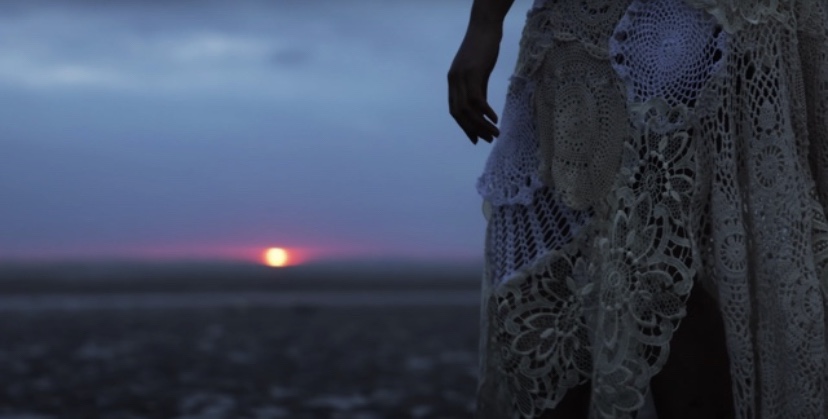Words by Paula Catalina Riofrio.
What do the territories we grow and live into represent for us? What represents us? The Zebras Crossing Collective, created in 2021, made an intriguing research about multiheritage identities across Africa and the UK, aiming at these questions. The project began through an exchange program between musician Yogin Sullaphen, Dance Artist Francesca Matthys as well as filmmaker Daniel Martin, which later developed into an Experimental Dance Film Trilogy involving Kieron Jina as dramaturg, Florent Venet as Costume Designer and Amy Lee Braaf as illustrator/Social Media Consultant.
The trilogy explores identity as a connection to ancestral culture as much as a renovation and generative practice. It starts with Navigating the Now, Unlearning to Celebrate, and finishes with Submerged in Loss. Each one of them varies in length and scenario woven by a single question, who am I?
She’s touched her past and is starting to taste the irremediable future. Inside Navigating the Now, the first film of the trilogy, Francesca is seated barefoot, eating handfuls, voices run in the back and across her head. Wearing a white dress, she senses the food with her touch and savours the elements that made possible the growth of every seed and branch. The soundscape that surrounds her is the acknowledgment of the culmination of difference. She is alone but connected to her culture, to her others; it seems as if the picnic was shared by many. The food has finished but her hands are tinged; life has happened, changes have been made in her looks and in her insides. Something is merging, she is other, navigating the now as the voices run in the background laced with the songs of birds.
Her movements impel almost in whispers, she accelerates as claiming to know, to retrieve. Submerged in Loss takes us to the natural essence of human communion, The Ritual. Francesca wakes ashore, caressing the sand, grubbing up vestiges once covered by ocean. A choir of heaven-like voices and the fading vibrations of a cymbal contrapose to looped and glitched voices; the Uhandi bow dialogues with the waves. She encounters the past in bones. She’s sand and memories mesmerised in movement. Her hips, her feet and lips find their way as they inhabit the old and new of this territory. She falls to the floor and I wonder about what was for her and is no more; as in her hands she sews the present. The sunset is near to break the day in two; a skull and bones in her hands, reached from underneath the soil, turned to dust – the way we’ll all go. Francesca finds herself rooted on her skin.
Synchronised to the beating of a drum, Francesca’s movements throw arrows of air. It twists the folds of her dress made from many fragments of coloured cloths. Unlearning to Celebrate, the final installment of the trilogy, deconstructs the heritage of the individual’s identity in order to reconfigure step-by-step new layers of the self. Movement, as most of life is, makes us subjects to learn and unlearn our identity, briskly, heavily. She tears away what is not her, what is solely and distantly inherited. Her movements are a self-expropriation of the rubric of the past, a quest for her core.
